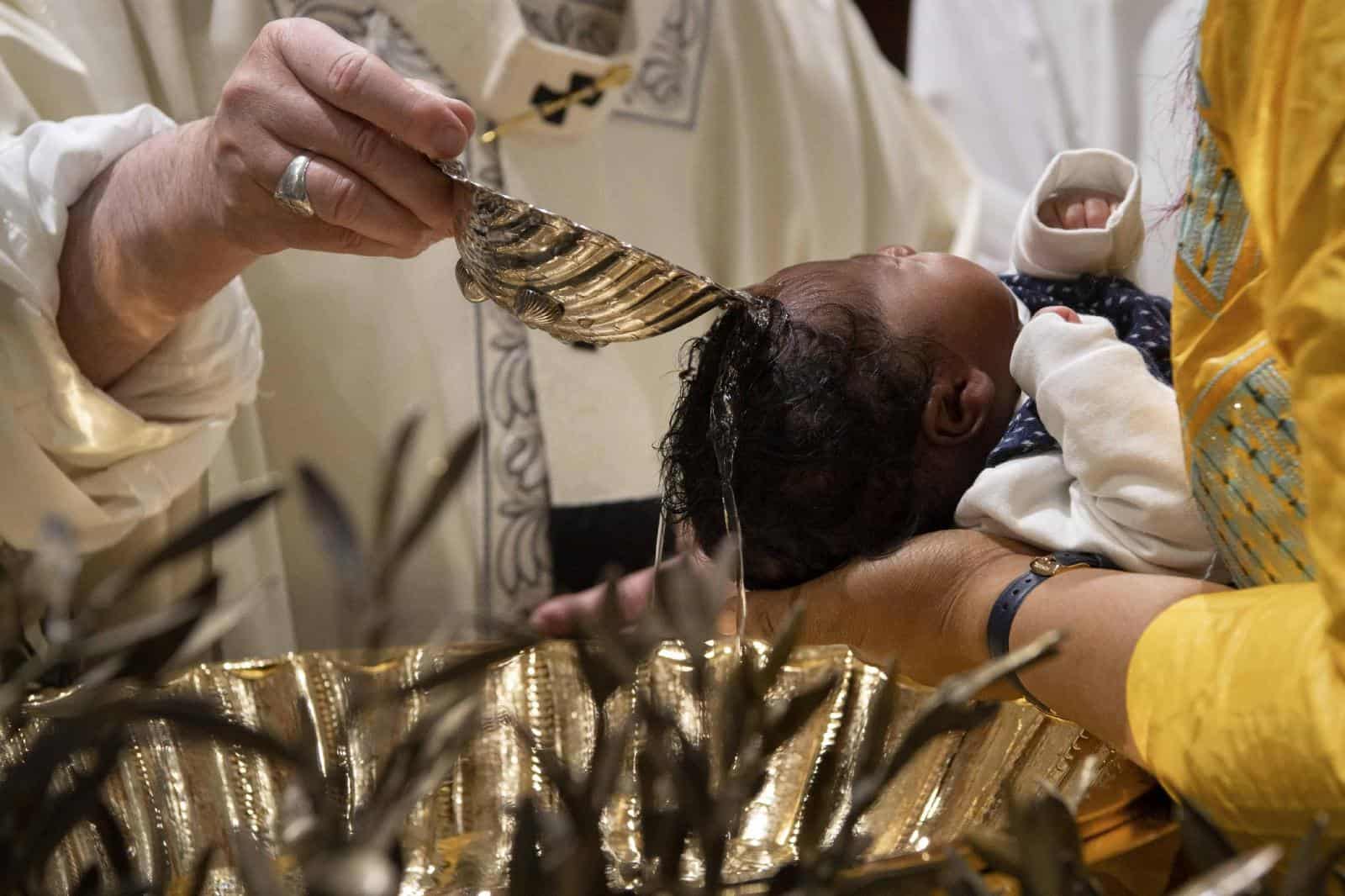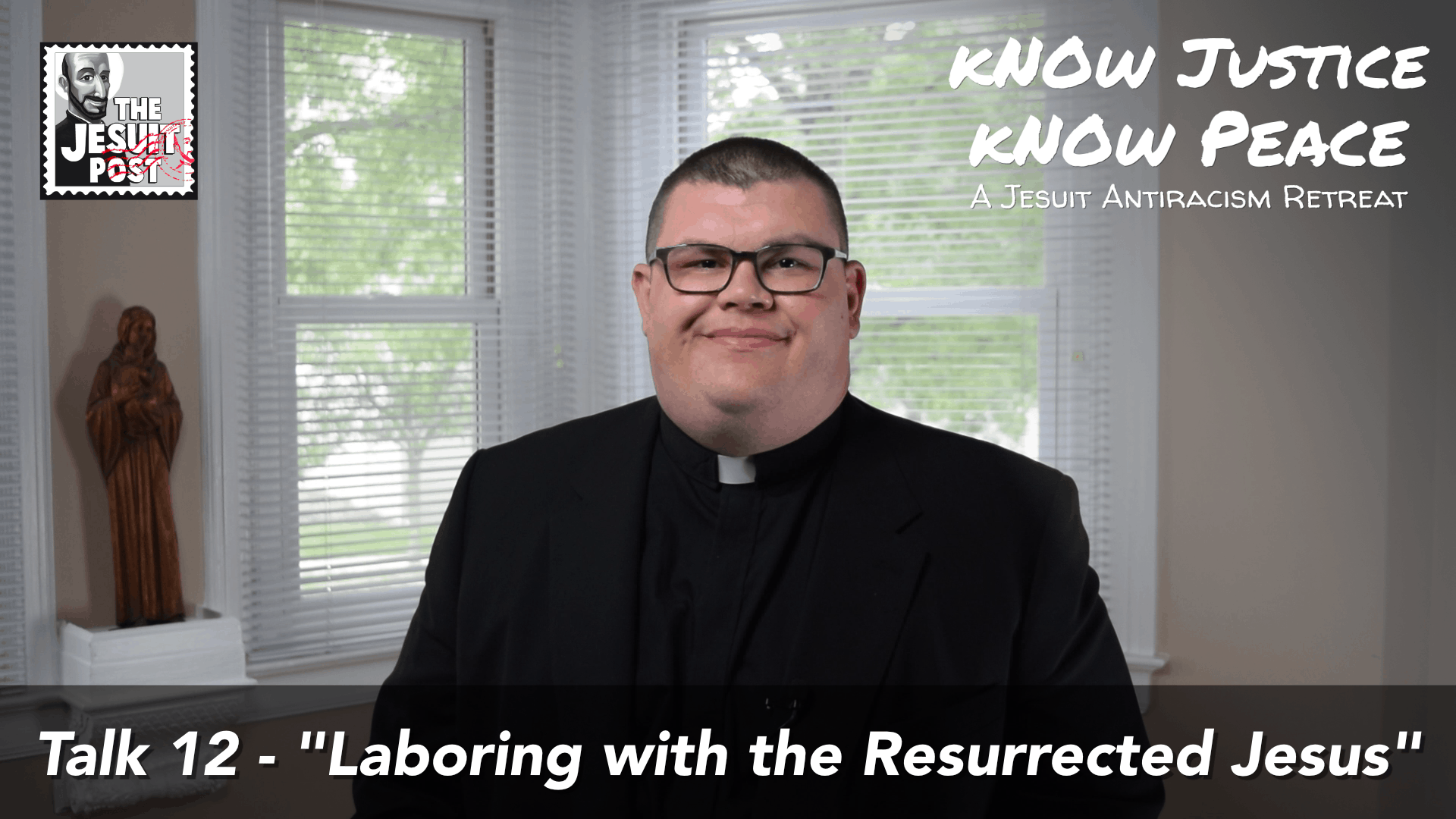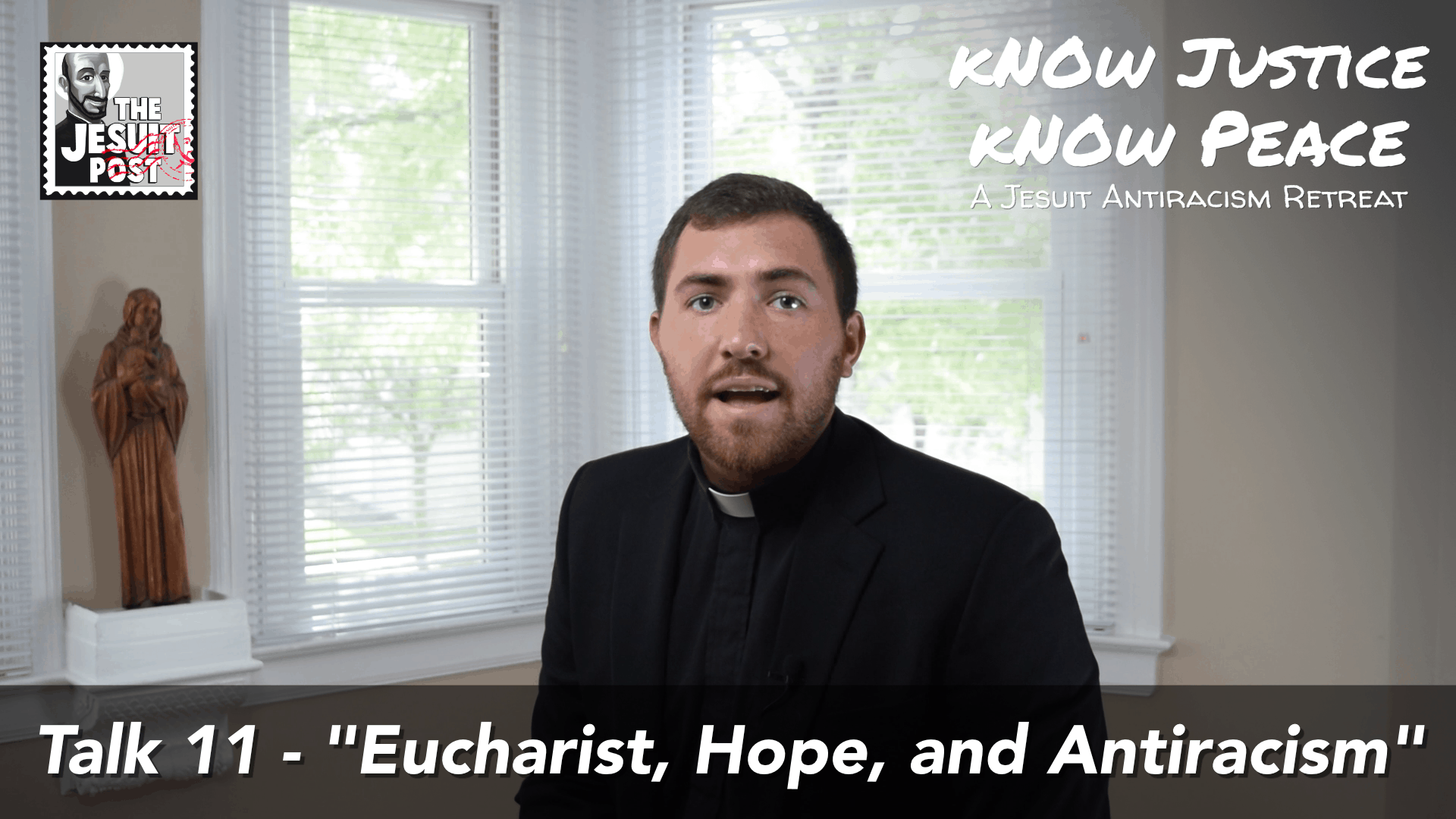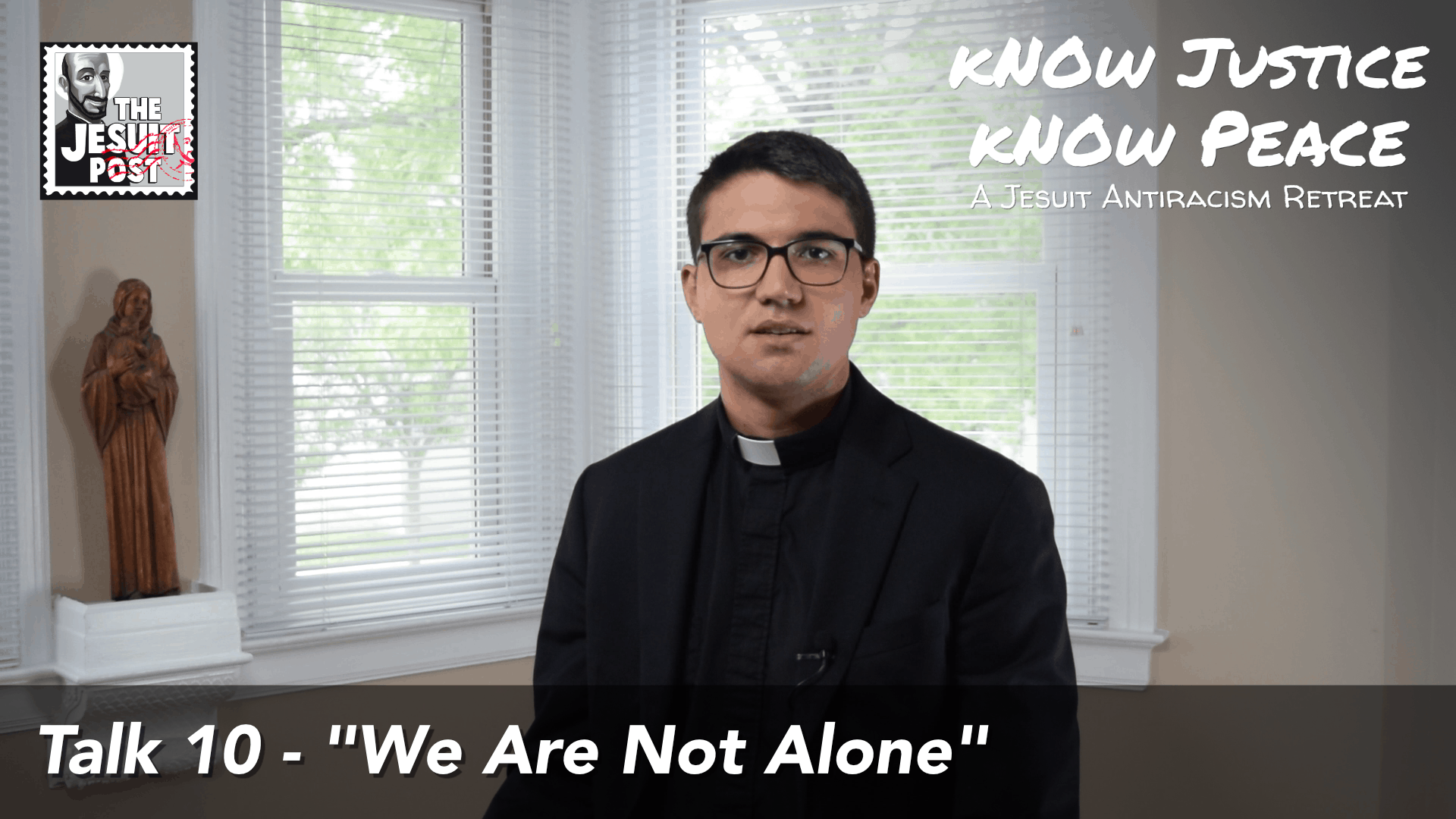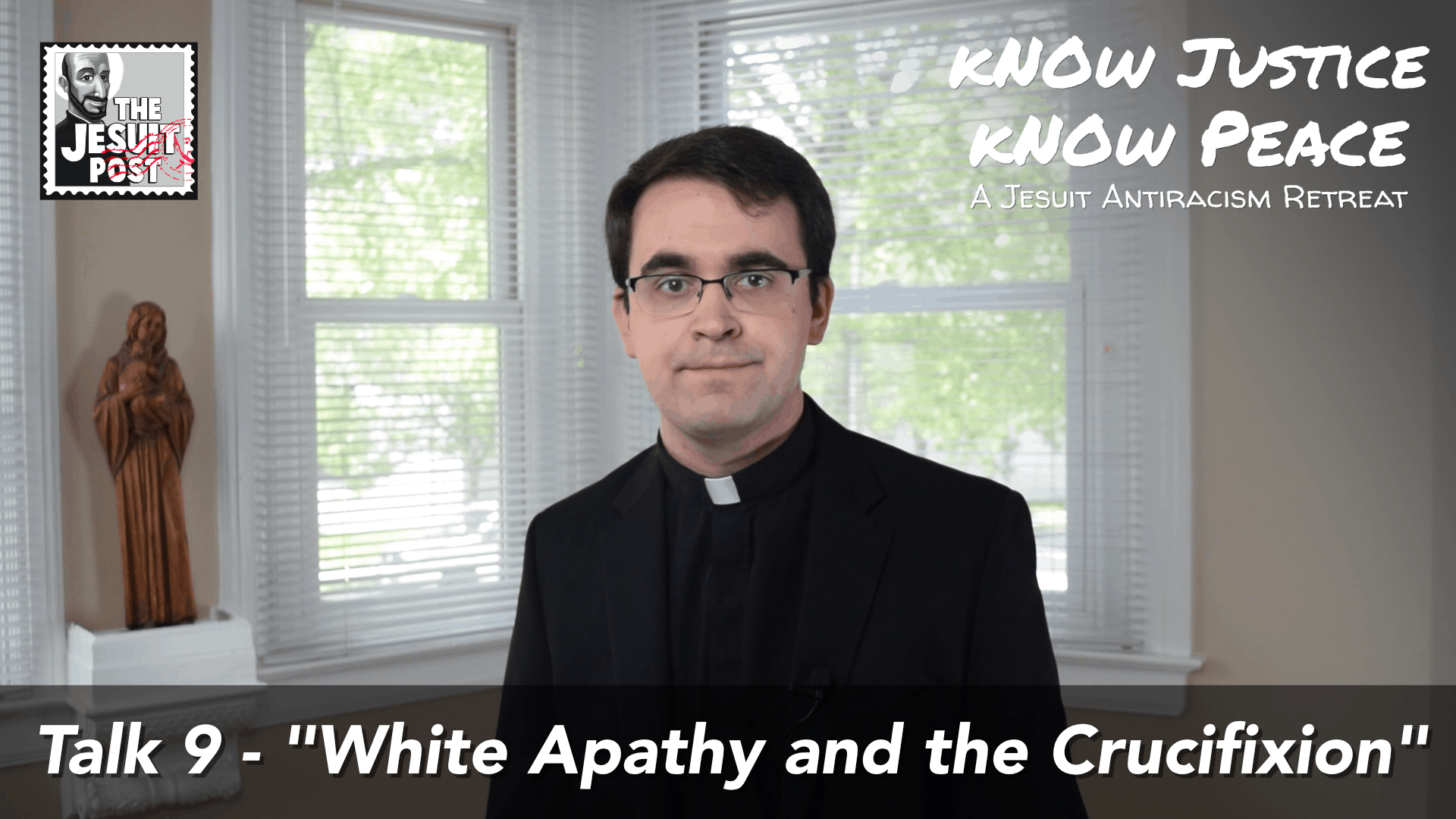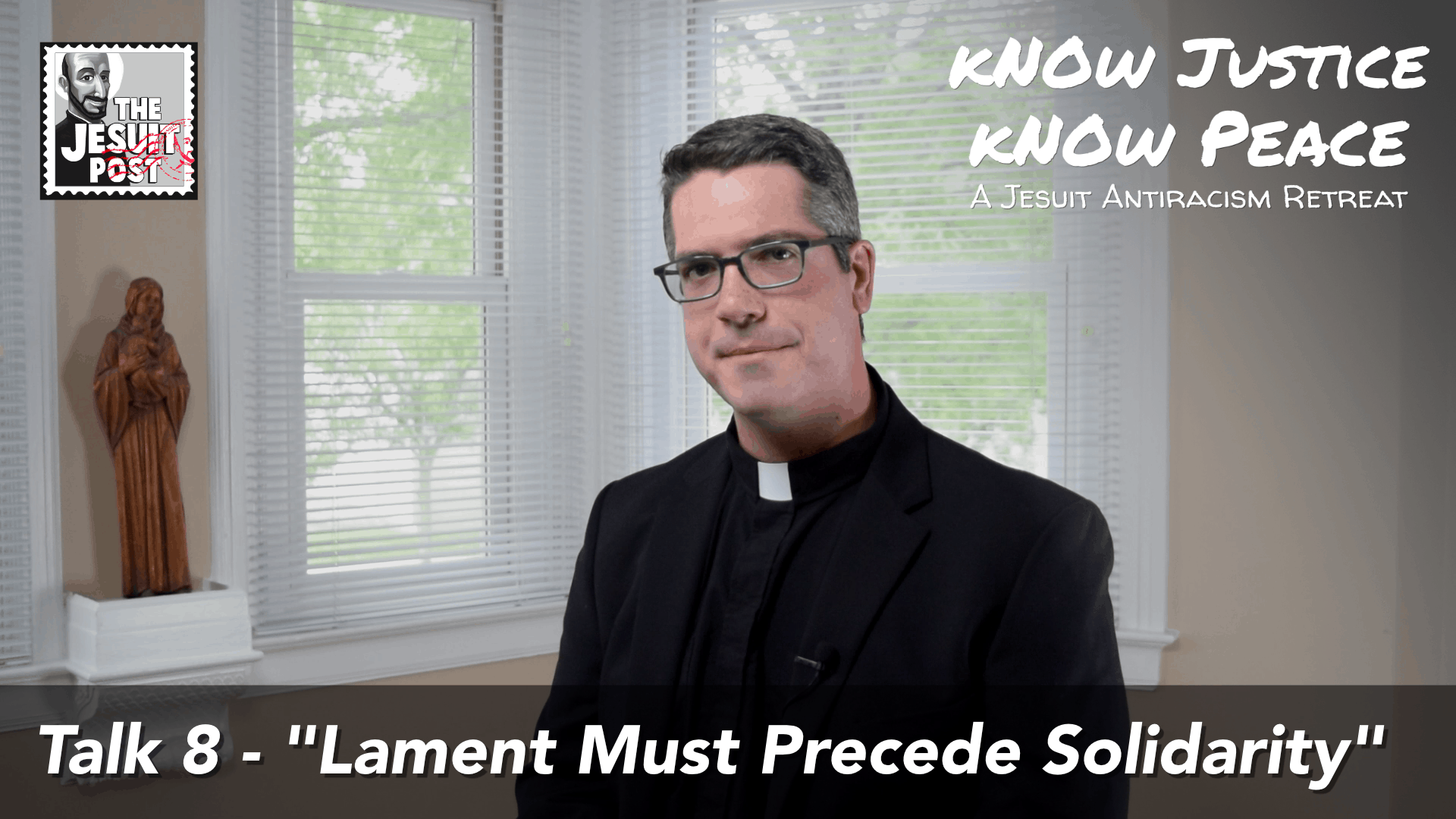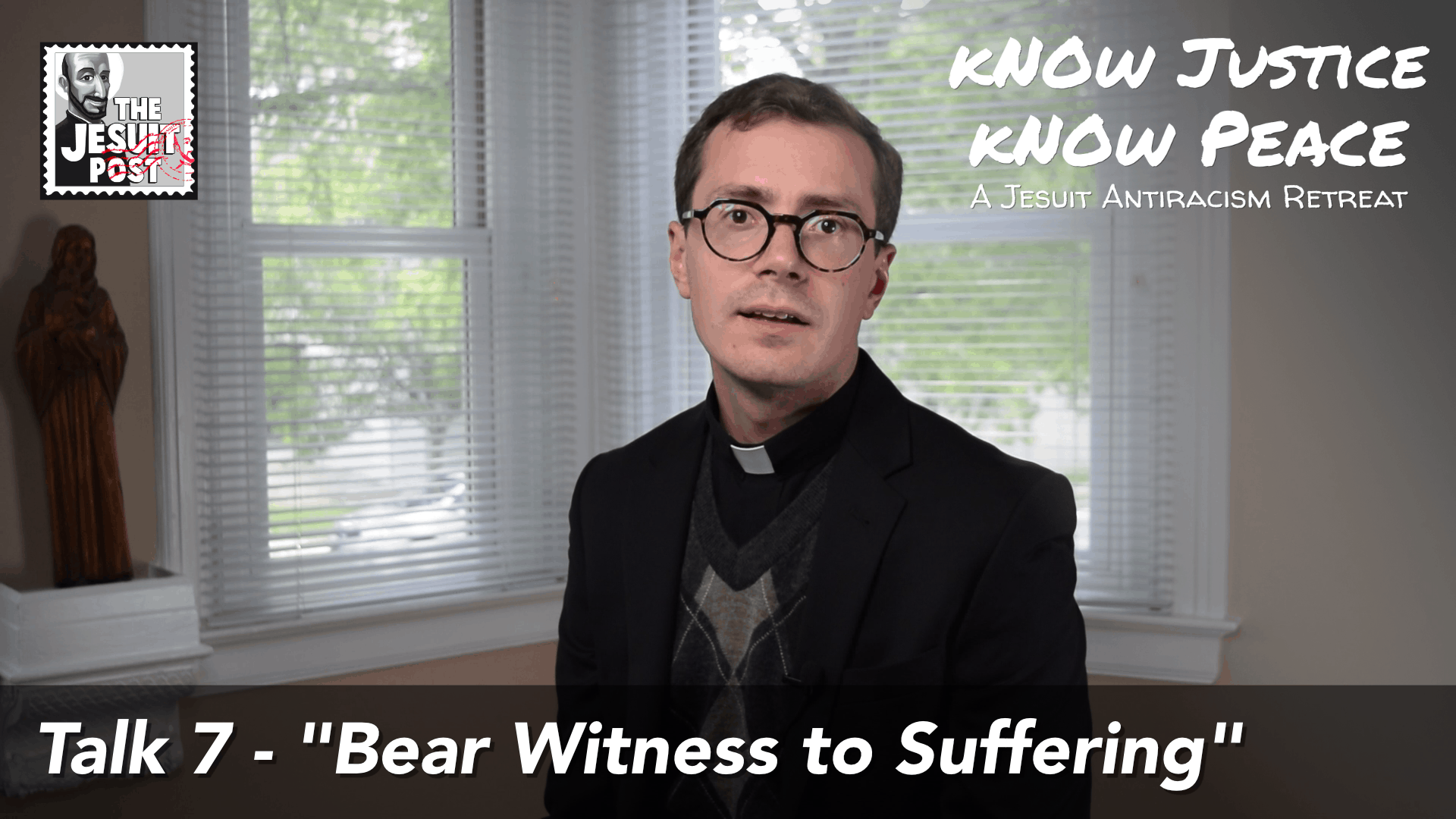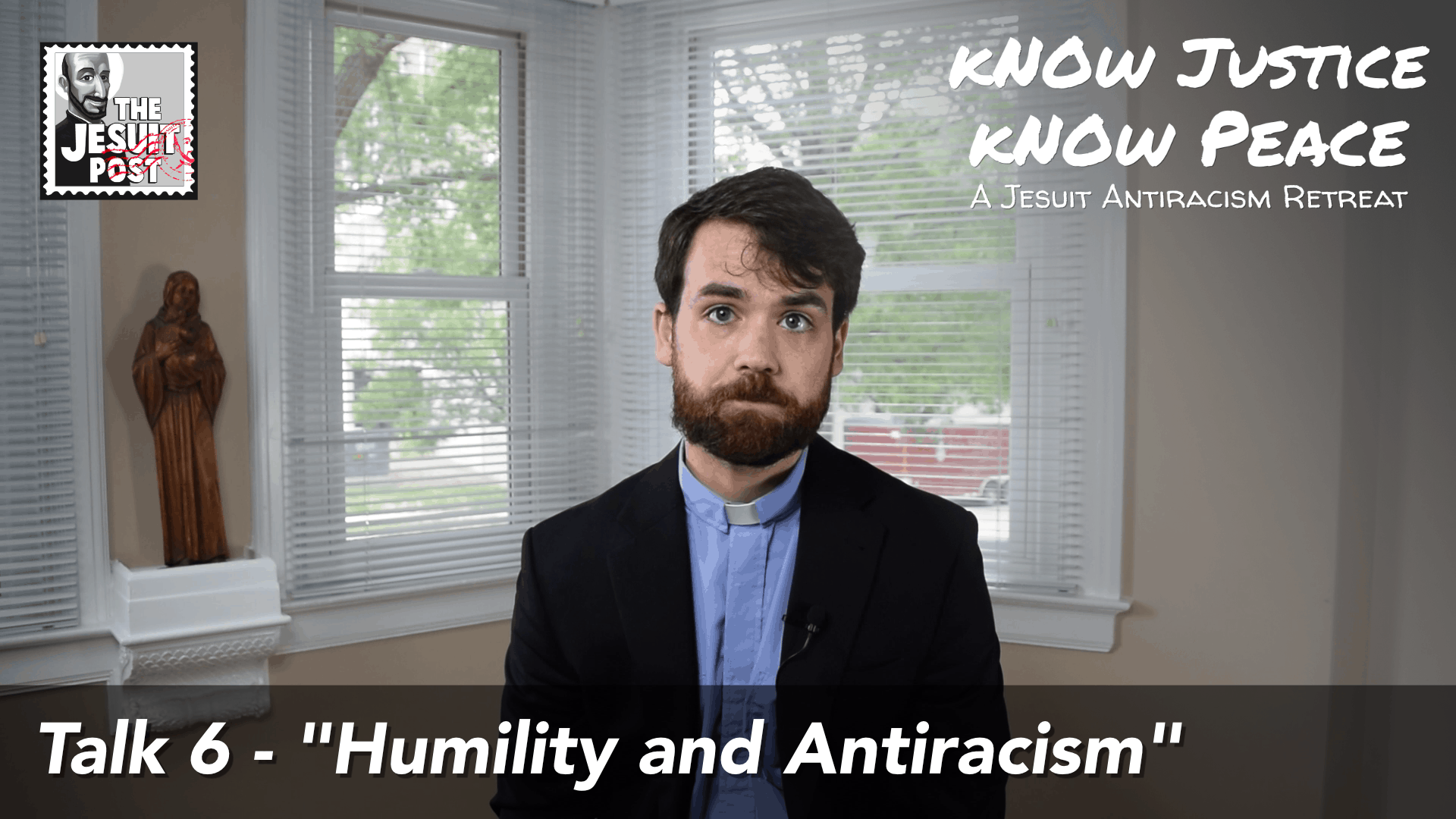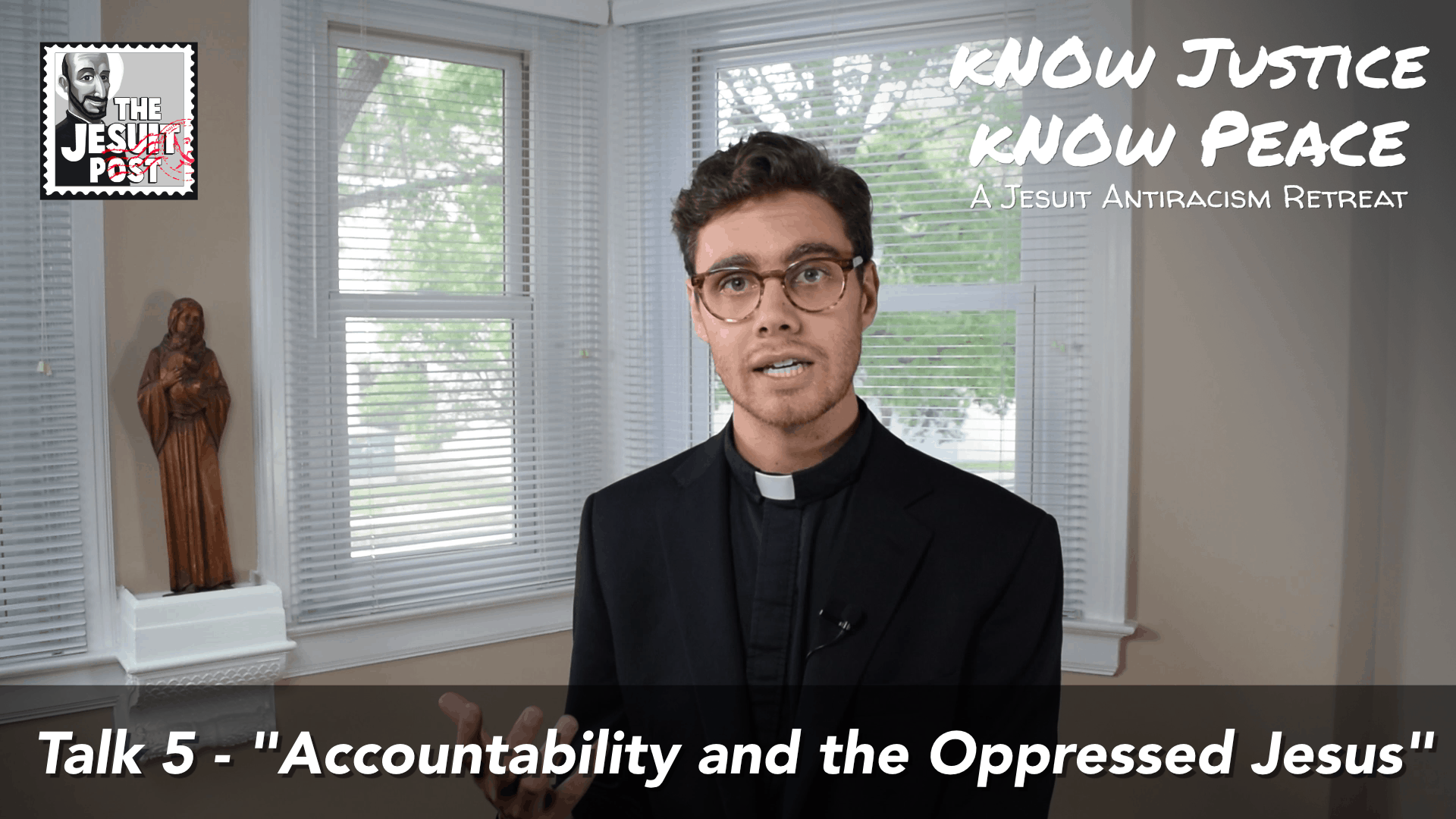TJP has an updated resource to share! Last Spring, we debuted the TJP Curriculum Guide. This guide includes articles and videos published by TJP, organized into twenty different themes, with hyperlinks to the content. This can be useful in classrooms, for retreats, for faculty formation, or however else you might find helpful. Check out the list of themes and download the updated TJP Curriculum Guide.
Posts in Series
Catholic 101: Planning a Catholic Baptism
You’re having a baby! Congratulations! We’re here to help you answer a few questions about Catholic baptism. How do I plan a baptism? How do I choose godparents? What happens during a baptism?
Laboring with the Resurrected Jesus | Know Justice, Know Peace: A Jesuit Antiracism Retreat
God never stops laboring for us and for our world, laboring for justice, reconciliation, and the end of racism. We clearly see this in the awakening that has spread throughout the world after the “lynching” of George Floyd. At the end of the Fourth Week of the Spiritual Exercises, St. Ignatius invites us to respond in gratitude to God’s unceasing love for us. In the last talk of our Jesuit Antiracism Retreat, Michael Bachmeier explains how this gratitude manifests in our willingness to surrender ourselves and join the labors of God through the marginalized.
Eucharist, Hope and Antiracism | Know Justice, Know Peace: A Jesuit Antiracism Retreat
The Eucharist, which is the source and summit of our faith, completely defies the logic of racism. Like the disciples on the road to Emmaus, Jesus’s breaking of the bread impulses us toward our community with renewed hope and consolation. Peter Bell reflects on letting the Body of Christ renew our antiracist commitment to one another.
We Are Not Alone | Know Justice, Know Peace: A Jesuit Antiracism Retreat
Where is the Risen Lord in the racism we’ve been confronting for so long? Jesus conquered sin and death as He rose from the dead. But his wounds were still there when He showed up to his disciples. In the beginning of the fourth week, Eric Couto reminds us that our hope and joy as Christians comes not from naivete, but from our faith that Jesus walks with us, as we transform the painful realities of our world.
White Apathy and the Crucifixion | Know Justice, Know Peace: A Jesuit Antiracism Retreat
Grieving with others is not the only way we commit to solidarity. Becoming aware of one’s participation in the oppression of others, is another way of opening the eyes of the heart and deciding to be responsible. Brian Engelhart, SJ, describes the apathy White people often exercise when dealing with the realities of racism that affect Black, Indigenous, and People of Color (BIPOC), and finishes the third week of our “Know Justice, Know Peace: A Jesuit Antiracism Retreat” with one contemporary example, as well as with an invitation to get rid of indifference.
Lament Must Precede Solidarity | Know Justice, Know Peace: A Jesuit Antiracism Retreat
Some realities in life can only be known through tears. The participation of Black, Indigenous, and People of Color (BIPOC) members in antiracism is not a hobby or an optional venture: it’s a matter of survival.They do not have the luxury that White people have to retire from the conversation of racism and flee from its painful realities. Matt Briand, SJ, invites us to put aside our fear to weep with those who weep because of racism, for true Christian love suffers along the beloved, and commits to justice.
Bear Witness to Suffering | Know Justice, Know Peace: A Jesuit Antiracism Retreat
Feeling grief for the suffering of others is one of the first steps toward a commitment to serve them. It helps us to have a greater sense of urgency for justice, as well as a deeper understanding of what is at stake. When we accompany those who suffer from racism in their mourning, we walk with our neighbors and bear witness to our Christian vocation. River Simpson, SJ, introduces us to the third week of our “Know Justice, Know Peace: A Jesuit Antiracism Retreat,” and invites us to remain faithfully present to the agonizing Jesus, through our accompaniment of the victims of racism.
Humility and Anti-Racism | Know Justice, Know Peace: A Jesuit Antiracism Retreat
Humility plays a vital role in anti-racism work. Intellectual and moral humility allows individuals to admit complicity in a culture of racism and commit themselves to the ongoing struggle of anti-racism. By looking at the Call of Simon Peter, contemplating the story of Martha and Mary, and meditating on what it means to be “childlike,” Sullivan McCormick invites us to reflect on where in our lives we might need more humility as anti-racists.
Accountability and the Oppressed Jesus | Know Justice, Know Peace: A Jesuit Antiracism Retreat
When I speak about racism, am I generally more worried about how white people will feel, react, or think of me than I am about how people of color will? Does my Church, my workplace, my classroom consider mainly the sensitives, comfort and concerns of white people? Billy Critchley-Menor points the anti-racism conversation in the right direction when he explains that it is about white people being held accountable to People of Color. White supremacy has shaped society around the accountability of white people. Anti-racism refocuses our attention so we are held accountable by the oppressed in our society; those in whom Jesus lives according to the Gospels.


